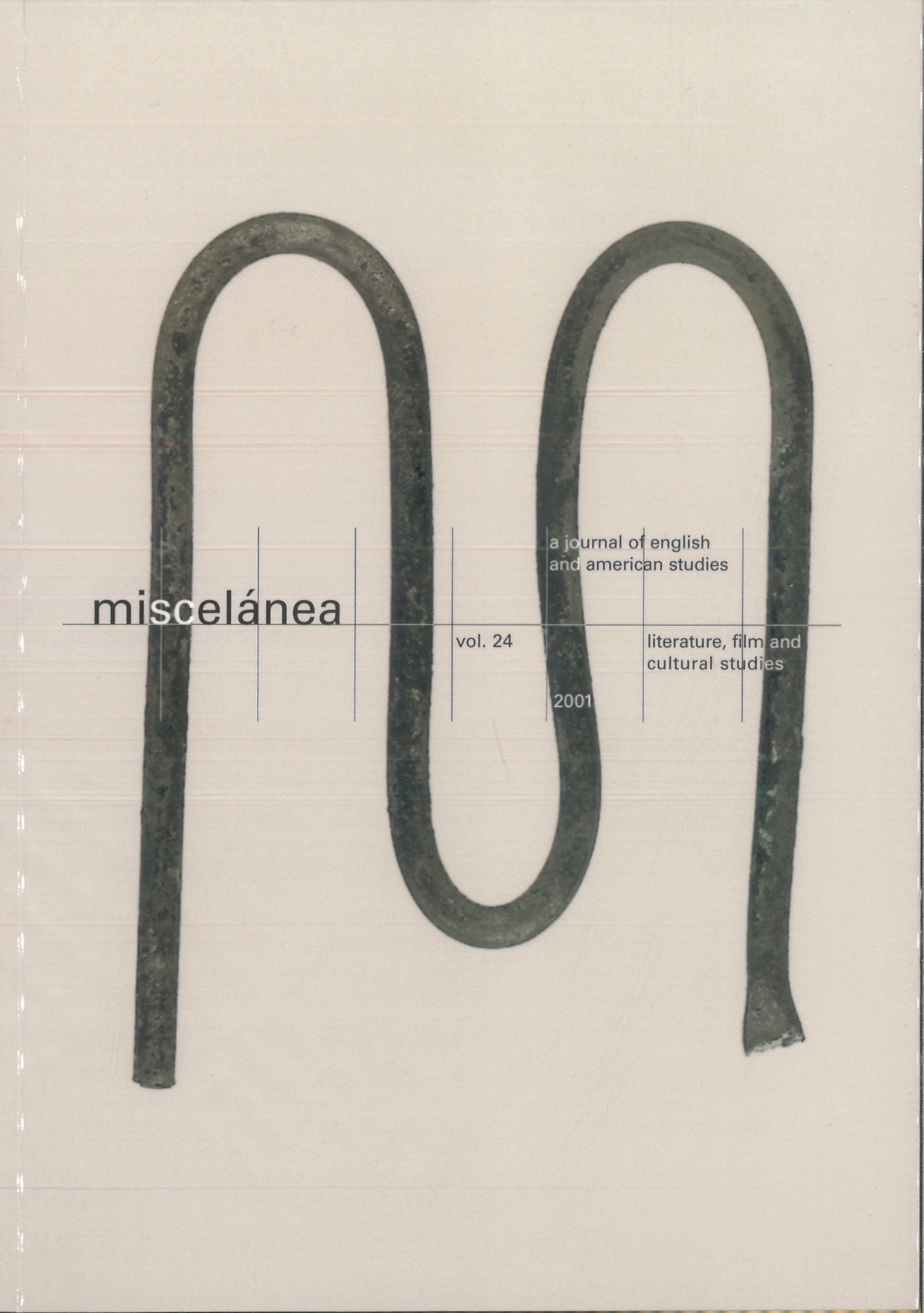Kurt Vonnegut's The Sirens of Titan: Human Will in a Newtonian Narrative Gone Chaotic
DOI:
https://doi.org/10.26754/ojs_misc/mj.200110265Keywords:
Science fiction vs. scientific fiction, Human will vs. determinism, Chaos theory, Temporal irreversibilityAbstract
The paper “Kurt Vonnegut’s The Sirens of Titan: Human Will in a Newtonian Narrative Gone Chaotic” explores the notion of human identity in its relation with the issue of free will as portrayed by Vonnegut’s 1959 novel The Sirens of Titan. Written at the very threshold of the postmodernist period, Vonnegut’s novel invites a shift of perspective in the interpretation of ‘reality’ —namely, a transition from the modern Newtonian to a postmodernist chaotic scientific paradigm. The novel suggests an implicit counter-message parallel to and subtly undermining its apparent affirmation of determinism. For this purpose, the paper focuses on the way in which some passages in the novel reflect some of the major theories about the chaotic behavior of molecular systems, basically temporal irreversibility and the combination of chance and necessity in molecular creative processes. Finally, the paper analyzes the metaphysical macrocosmic implications of these theories as depicted in Vonnegut’s novel —firstly, as an answer to the individuals’ felt inability to find their identity through decision-making; and secondly, as a way out of constraining, totalizing explanations of the world and the collective paranoia which the search for those explanations may bring about.
Downloads
References
HOLLAND, Thomas R. 1995. Cliffs Notes on Inc.
HUBER, Chris. 1999. ‘The Vonnegut Web: The Sirens of Titan. 1959." In http://www.duke.edo/crh4/vonnegut/sot.html.
HUTCHEON, Linda. 1988. A Poetics of Postmodernism: History, Theory, Fiction. New York: Routledge.
KLEIN, Herbert G. 1998. ‘Kurt Vonnegut’s The Sirens of Titan and the Question of Genre.’ In http://www. ph-erfurt.de/neumann/esse/artic99/klein2/5_99.html
KUNKOWITZ, Jerome. 1998. Vonnegut In Fact: The Public Spokesmanship of Personal Fiction. South Carolina: University of South Carolina Press.
LUNDQUIST, James. 1980 (1977). Kurt Vonnegut. New York: Frederick Ungar Publishing CO.
MAYO, Clark. 1977. Kurt Vonnegut: The Gospel from Outer Space (or, Yes We Have No Nirvanas). San Bernardino, CA: The Borgo Press.
NAVEU, Robert. 1981. Readings from the New Book on Nature: Physics and Metaphysics in the Modern Novel. Amherst: University of Massachussetts Press.
PRIGOGINE, Hlya and Isabelle Stengers. 1985 (1984). Order out of Chaos: Man's New Dialogue with Nature. London: Flamingo.
SCHATT, Stanley. 1976. Kurt Vonnegut, Jr. Boston: G. K. Hall & Co.
SILVER, Steven. 2000. ‘Steven Silver’s Reviews. The Sirens of Titan by Kurt Vonnegut.’ In http:/Awww.sfsite.com/silverag/vonnegut.html
TANNER, Tony. 1979 (1971). City of Words. A Study of American Fiction in the Mid-Twentieth Century. London: Jonathan Cape Paperback.
Vit, Marek. 1997. ‘Kurt Vonnegut's Corner: Kurt Vonnegut Jr, The Sirens of Titan.’ In http:/Awww.geocities.com/Hollywood/4953/kv_titan.html
VONNEGUT, Kurt. 1990. Hocus Pocus or Perpetual Motion. A Novel. New York: Putnam.
—. 1991 (1969). Slaughterhouse-5. London: Vintage Books.
—. 1996 (1959). The Sirens of Titan. London: Indigo.
—. 1997. Timequake. New York: Putnam.
WHITE, Eric Charles. 1990. ‘Contemporary Cosmology and Narrative Theory.’ In Peterfreund, Stuart. (ed.). Literature and Science: Theory and Practice. Boston: Northeastern U. P.: 91-111.
WHITE, Hayden. 1981. ‘The Value of Narrativity in the Representation of Real Events.’ In Mitchell, W. J. T. (ed.). On Narrative. Chicago: University of Chicago Press: 1-23.
Downloads
Published
How to Cite
Issue
Section
License

This work is licensed under a Creative Commons Attribution-NonCommercial 4.0 International License.


